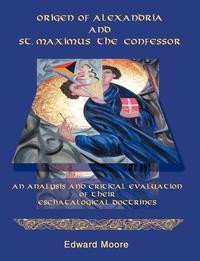The revision of Origen"s philosophical theology by St. Maximus the Confessor resulted in an eschatology involving the replacement of the human ego by the divine presence. In this study, I will examine the theological developments that led to this loss of a sense of human freedom and creativity in the face of the divine, tracing the influence of Origen"s eschatology through the Cappadocian Fathers, Evagrius Ponticus and others, up to Maximus. This will allow me to show the manner in which Origen"s humanistic theology was misunderstood and misinterpreted throughout the Patristic era, culminating in the anti-personalistic system of Maximus. Special attention will be paid to the development of Christian Neoplatonism, and how Christian contacts with the pagan philosophical schools came to have a profound effect on Eastern Patristic theology and philosophy. The final section of this study will suggest some ways in which the history of Patristic eschatology - especially Origen and Maximus - may serve as a fruitful source for contemporary theologians who are concerned with issues of personhood, creativity, and existential authenticity. Это и многое другое вы найдете в книге Origen of Alexandria and St. Maximus the Confessor (Edward Moore)
Origen of Alexandria and St. Maximus the Confessor Edward Moore
Подробная информация о книге «Origen of Alexandria and St. Maximus the Confessor Edward Moore». Сайт не предоставляет возможности читать онлайн или скачать бесплатно книгу «Origen of Alexandria and St. Maximus the Confessor Edward Moore»
